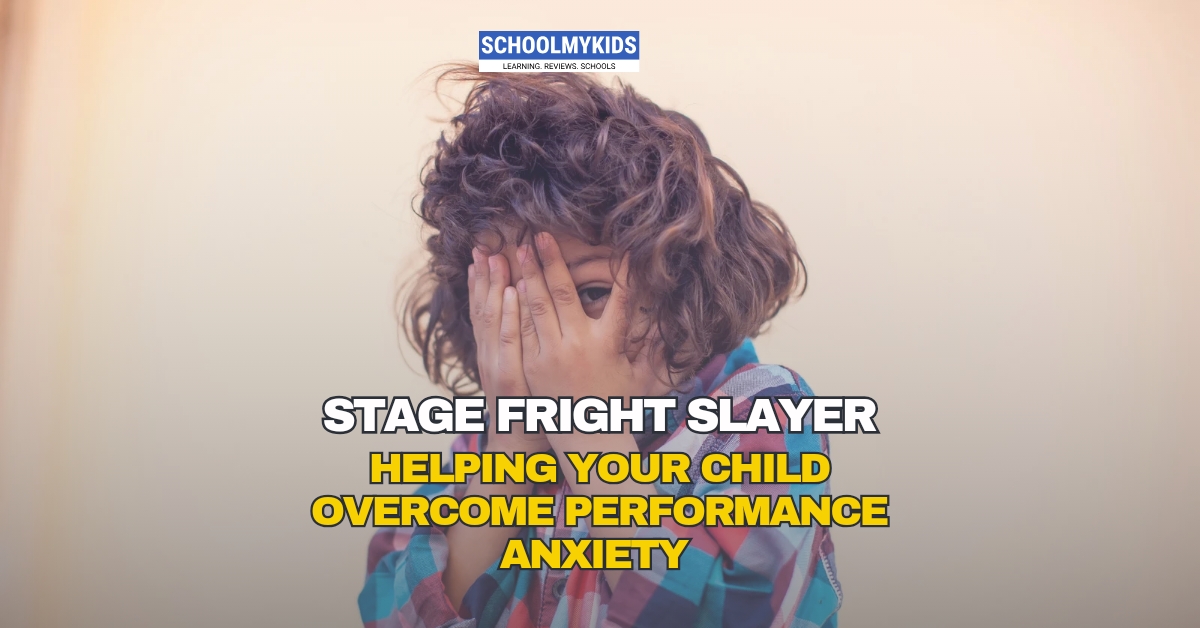Has your little star suddenly gone shy? Does the thought of a school play or recital send shivers down their spine? Performance anxiety, often nicknamed “stage fright,” is a common hurdle faced by many children. It might manifest as stomach aches, trembling hands, or even tears. But fear not, parents! With a little understanding and the right tools, you can be your child’s stage fright slayer.
Why Do Butterflies Take Flight?
Before tackling the jitters, let’s understand what fuels them. Performance anxiety stems from a fear of judgment and failure. Children worry about making mistakes, being laughed at, or simply not being good enough. This fear triggers the body’s “fight-or-flight” response, leading to physical symptoms like a racing heart and sweaty palms.
Remember, this anxiety isn’t a sign of weakness – it’s a sign your child cares! Many successful performers, from actors to musicians, confess to experiencing stage fright. The key is learning to manage these nerves so they don’t become debilitating.
Building Confidence, One Step at a Time
Here’s your action plan to empower your child and turn stage fright into stage presence:
- Be a Champion, Not a Critic: Acknowledge your child’s fear and validate their feelings. Statements like “It’s okay to feel nervous, everyone does before a performance” go a long way. Focus on their effort rather than perfection. Positive reinforcement builds confidence – “Wow, you practiced your lines so much, you’ll do great!”
- Knowledge is Power: Familiarize your child with the performance environment. Attend rehearsals or do a practice run at home. The more comfortable they are with the surroundings, the less intimidating it will feel.
- Practice Makes Progress: Encourage regular practice, but keep it fun! Let them perform for you or a small, supportive audience like their siblings. As their skills improve, their confidence will soar.
- Visualization is Key: Help your child visualize success. Before the performance, get them into a relaxed state and have them imagine themselves delivering a stellar performance. Focus on the positive emotions – the joy of performing, the supportive audience, and the pride in accomplishment.
- Breathing Exercises are Superpowers: Teach your child simple breathing techniques to calm their jitters. Try slow, deep breaths, counting to four on the inhale and six on the exhale. This can help regulate their heart rate and bring a sense of calm.
- Focus on the Fun, Not the Fear: Remind your child why they started performing in the first place. Is it the love of music, the joy of storytelling, or the thrill of being in the spotlight? Shift their focus from the fear of criticism to the enjoyment of the activity.
- Celebrate Every Step: Acknowledge and celebrate each milestone, big or small. Did they conquer a difficult line? Did they overcome their fear of singing solo? Recognition for their efforts fuels motivation and builds confidence.
- Be a Role Model: Share your own experiences with performance anxiety. Did you ever feel nervous giving a presentation? Talk about how you managed your nerves and the sense of accomplishment you felt afterward. Knowing they’re not alone can be a huge comfort for children.
- Seek Professional Help: If your child’s anxiety is severe or interferes with their daily life, consider seeking professional help from a therapist specializing in child anxiety.
Remember: Overcoming stage fright is a journey, not a destination. Be patient, supportive, and celebrate their progress along the way. Soon, your little star will be shining bright on stage, with confidence and joy!








Be the first one to comment on this story.